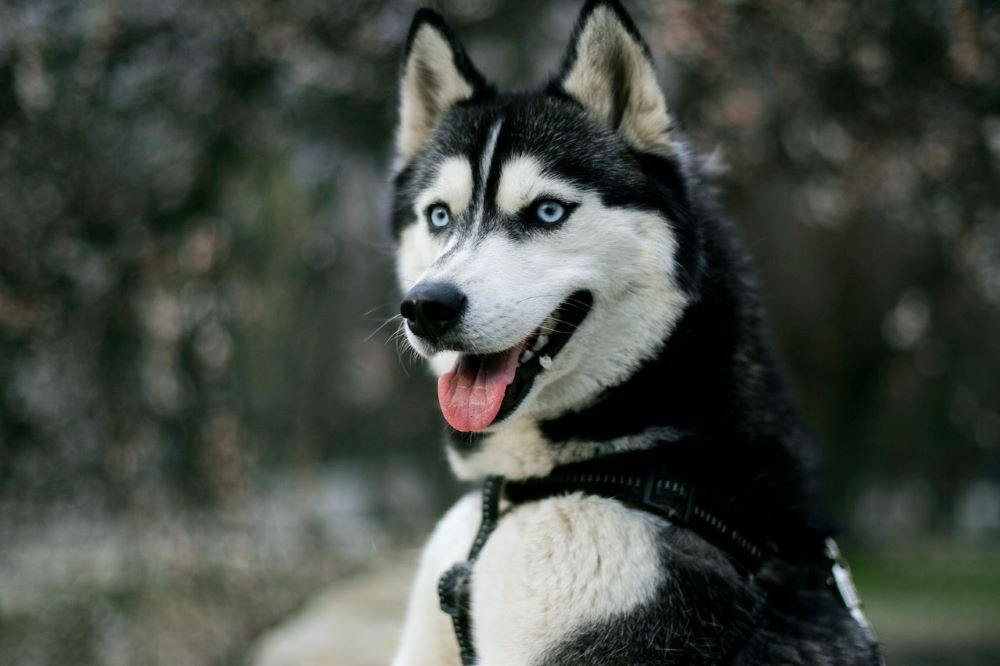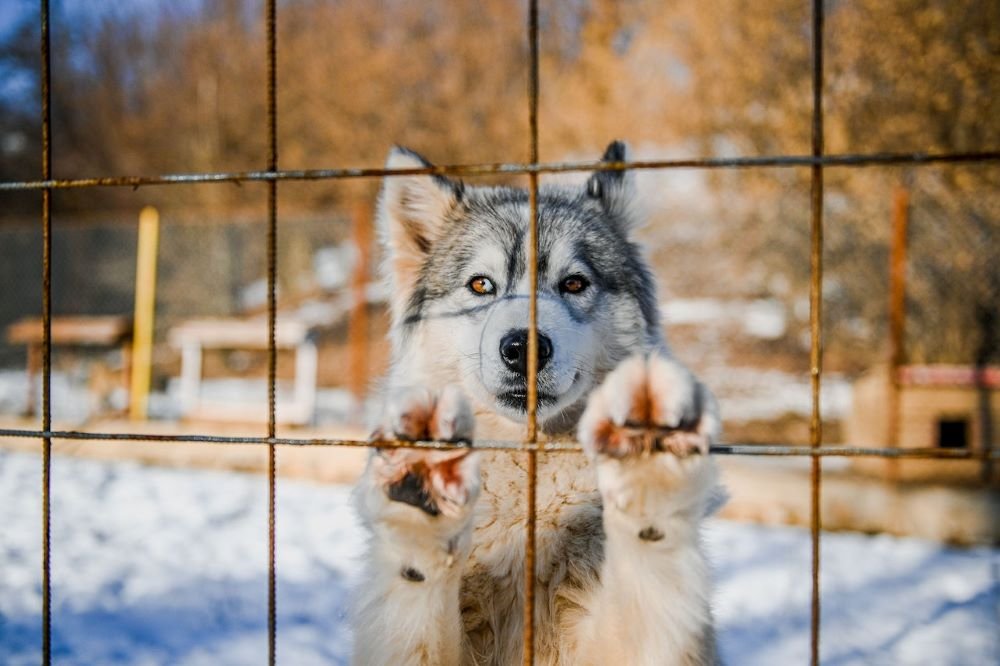Table of Contents
The Husky is a majestic breed known for its striking appearance and strikingly dramatic behavior. If you’re a proud owner of a Husky, you’ve likely witnessed firsthand the unique personality traits that set this breed apart from others. But have you ever wondered what fuels their eccentric behavior?
This article delves into the psychology behind the Huskies’ dramatic behavior and explores the reasons behind their distinct nature. We uncover the factors contributing to their unique behavioral patterns, from solid pack instincts to high energy levels.
Understanding these reasons can not only help you better connect with your Husky but also enable you to provide them with the care and support they require. From separation anxiety to excessive howling, we address common behaviors exhibited by Huskies and shed light on the underlying psychological triggers.
Whether you’re a current Husky owner or considering adopting one, this article aims to provide valuable insights into the fascinating world of Husky behavior. Join us as we uncover the five reasons behind the Huskies’ dramatic behavior and better understand our furry companions.
Understanding The Huskies’ Dramatic Behavior
The Husky breed is known for its unique and sometimes challenging behavior. To truly comprehend their actions, we must first understand the psychology behind their behavior. Huskies have complex instincts and traits that contribute to their dramatic nature.
One of the critical factors to consider is the Husky’s pack mentality and hierarchical nature. Huskies are descendants of sled dogs and have retained their strong pack instincts. This means they thrive on social interactions and view their family, including their human owners, as part of their pack. The pack mentality plays a significant role in their behavior as they seek to establish their place within the family hierarchy.
Huskies are also known for their high energy levels. They were bred to be working dogs, pulling sleds for miles. This has resulted in a breed with boundless energy and a strong need for physical exercise. Without adequate exercise, Huskies can become restless and exhibit destructive behavior to release their pent-up energy.
Another aspect of the Husky’s psychology is their strong prey drive and instincts. Huskies are naturally inclined to chase and hunt, which can manifest in behaviors such as chasing squirrels or cats. This prey drive can be challenging, especially in environments with small animals or other pets. Understanding and addressing this instinctual behavior is crucial for a harmonious household.

Reason 1: Pack mentality and hierarchy
The pack mentality is deeply ingrained in the Husky breed, as they are descendants of sled dogs that rely on teamwork and cooperation. Each member has a specific role and position within the hierarchy in a pack. Understanding the pack mentality is vital for building a strong bond with your Husky and managing their behavior.
Huskies view their human family as part of their pack and seek to establish their position. They may display dominant or submissive behaviors to assert their rank. Owners must establish themselves as the pack leader through consistent training and clear boundaries. This helps the Husky understand their place and reduces the likelihood of behavioral issues arising from a lack of clear hierarchy.
Maintaining a consistent routine and providing structure can also help reinforce the pack hierarchy. Huskies thrive on predictability and stability, so setting feeding times, exercise routines, and training sessions can help them feel secure and reduce anxiety.
Overall, understanding and respecting the pack mentality of Huskies is essential for creating a harmonious and balanced relationship with your furry friend.
Reason 2: High energy and exercise needs
Huskies are known for their boundless energy and require significant exercise to stay mentally and physically stimulated. Huskies can become bored and restless without adequate exercise, leading to destructive behavior such as chewing furniture or digging up the yard.
A tired Husky is a well-behaved Husky. Daily exercise should include both physical and mental stimulation. Long walks, jogs, or hikes are great ways to burn off their excess energy. Additionally, engaging their minds through puzzle toys, obedience training, or agility courses can help keep them mentally sharp and satisfied.
It’s important to note that Huskies have impressive endurance and can handle long distances. If you’re active or enjoy outdoor activities, a Husky can be a great adventure companion. However, it’s crucial to build up their stamina gradually and ensure they stay hydrated and cool in hot weather.
Reason 3: Strong prey drive and instincts
Huskies possess a strong prey drive and instincts that stem from their working and hunting background. This means they are naturally inclined to chase after small animals, such as squirrels, rabbits, or even cats. Managing their prey drive can be challenging, especially in households with other pets.
Early socialization and training are vital in managing a Husky’s prey drive. Exposing them to different animals and teaching them appropriate behaviors from a young age can help reduce their instinctual chase response. However, it’s important to remember that Huskies have a strong prey drive, and eliminating this behavior may not be possible.
In multi-pet households, it’s crucial to provide proper introductions and supervision. Huskies should be taught to coexist peacefully with other pets, and small animals should be kept separate for their safety. Additionally, reinforcing commands such as “leave it” or “stay” can help redirect their focus and prevent unwanted chasing behaviors.
Reason 4: Independent and stubborn nature
Huskies are known for their independent and stubborn nature. This trait can sometimes challenge training, as they may resist following commands or exhibit selective hearing. Understanding their independent nature can help you tailor your training approach to suit their needs.
Positive reinforcement and consistency are critical when training a Husky. They respond well to rewards-based training methods, where they are praised and rewarded for desired behaviors. Harsh or punitive training techniques can be counterproductive and erode the trust between you and your Husky.
Huskies thrive on mental stimulation and challenges. Incorporating training into their daily routine can help keep their minds engaged and prevent boredom. Short, frequent training sessions are more effective than long, repetitive ones. Remember to keep the training sessions fun and varied to maintain their interest.
Reason 5: Sensitivity to environmental factors
Huskies are sensitive creatures who can be significantly affected by their environment. Changes in weather, noise levels, or even the presence of new people or animals can impact their behavior and well-being. It’s essential to be aware of these sensitivities and provide them with a safe and secure environment.
Extreme weather conditions can be particularly challenging for Huskies. Their thick double coat makes them more susceptible to heatstroke in hot weather and hypothermia in cold weather. It’s crucial to provide them with appropriate shelter, access to shade, and plenty of fresh water to stay hydrated.
Huskies can also be sensitive to loud noises or chaotic environments. They may become anxious or exhibit destructive behavior when faced with excessive noise or unfamiliar surroundings. Creating a calm and quiet space for your Husky during these situations can help alleviate their stress and prevent undesirable behaviors.
How To Manage and Train a Huskies’ Dramatic Behavior
Managing and training a Husky’s behavior requires patience, consistency, and a deep understanding of their unique traits. Here are some tips to help you effectively manage and train your Husky:
- Start training early: Begin training and socialization when you bring your Husky home. Early exposure to different people, animals, and environments will help them develop into well-rounded and confident dogs.
- Be consistent: Establish consistent rules and routines for your Husky. This will help them understand what is expected and reduce confusion or anxiety.
- Use positive reinforcement: Reward your Husky with treats, praise, and affection when they exhibit desired behaviors. Positive reinforcement is more effective than punishment or harsh training methods.
- Provide mental stimulation: Huskies thrive on mental challenges. Engage their minds by incorporating puzzle toys, obedience training, or interactive games into their daily routine.
- Exercise regularly: Ensure your Husky receives ample physical exercise to burn off their excess energy. Long walks, runs, or play sessions in a secure area are essential for their well-being.
- Seek professional help if needed: If you’re facing difficulties in managing your Husky’s behavior or exhibiting severe anxiety or aggression, it’s crucial to seek professional help from a qualified dog trainer or behaviorist.
Seeking Professional Help For Behavioral Issues
While some Husky behavior issues can be managed with consistent training and patience, there are instances where professional help may be necessary. A qualified dog trainer or behaviorist can provide guidance, support, and personalized training plans to address specific behavioral issues.
If your Husky displays excessive aggression, severe anxiety, or persistent destructive behavior, seeking professional assistance is essential. These trained experts can assess the underlying causes of the behavior and provide tailored solutions to help you and your Husky overcome these challenges.
Remember, seeking professional help is not a sign of failure as a dog owner. It is a proactive step towards providing your Husky with the best care and ensuring their well-being.
Conclusion
In conclusion, the Huskies’ dramatic behavior can be attributed to a combination of factors rooted in their psychology. Understanding these reasons is crucial for building a strong bond with your Husky and providing them with the care and support they need.
The pack mentality, high energy levels, strong prey drive, independent nature, and sensitivity to environmental factors all contribute to the unique behavioral patterns exhibited by Huskies. We can create a harmonious and fulfilling relationship with our furry companions by embracing these characteristics and tailoring our approach to their needs.
Remember, owning a Husky requires commitment, patience, and a willingness to adapt. With the right understanding and training, you can unlock the full potential of your Husky’s vibrant personality and enjoy a lifetime of love and companionship.
FAQs
Why do Huskies exhibit dramatic behavioral psychology?
Huskies are known for their dramatic behavior due to a combination of breed traits and environmental factors that influence their psychology.
What are some common dramatic behaviors displayed by Huskies?
Huskies may engage in excessive howling, dramatic vocalizations, attention-seeking actions, stubbornness, and intense reactions to various stimuli.
What role do breed traits play in Huskies’ dramatic behavior?
Huskies have a strong pack mentality and are bred for tasks like sledding in challenging conditions. Their expressive behaviors can be traced to their communication needs within a pack.
How does their environment contribute to dramatic behavior?
Huskies require substantial physical and mental stimulation. When their needs aren’t met, they can become bored or frustrated, leading to dramatic actions aimed at getting attention or relieving pent-up energy.
Can training and socialization mitigate dramatic behavioral issues?
Yes, proper training and early socialization can help channel Huskies’ energy positively. Establishing a routine, engaging in consistent training, and providing mental challenges can reduce dramatic behaviors and create a more balanced temperament.
